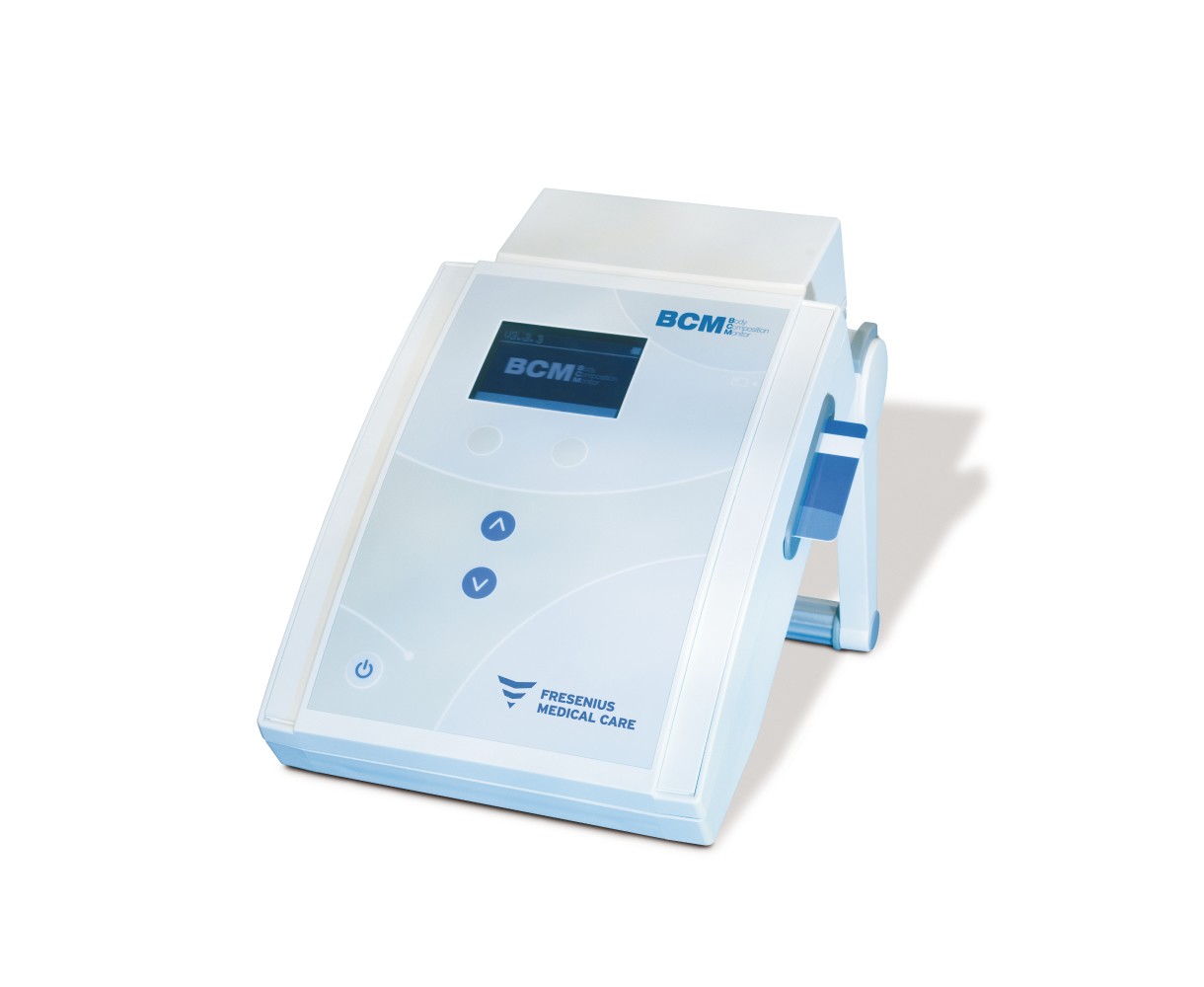HighVolumeHDF® as standard.
Fluid management for hemodialysis
Advanced fluid management for effective cardioprotection
Chronic volume overload is a common condition among patients with ESRD and is directly associated with hypertension, increased arterial stiffness and left ventricular hypertrophy (LVH). It is ultimately one of the key factors contributing to the high CVD related morbidity and mortality amongst these patients. Vice versa, it was demonstrated that achieving normohydration through effective Fluid Management therapy is associated with better outcome of HD patients3. The BCM-Body Composition Monitor is the core component of the Advanced Fluid Management therapy programme of Fresenius Medical Care. It measures and quantifies the patient’s fluid status and provides a reliable decision basis for effective fluid and nutritional management.
The BCM-Body Composition Monitor is a basic part of the CorDiax product line.
Advanced fluid management may lead to: |
|---|
| Improved patient well-being |
| Less intradialytic complications and hypotensive episodes |
| Better control of hypertension |
| Reduction in antihypertensive medication Reduced cardiovascular mortality |
Cost-saving potential of fluid management
In dialysis patients, fluid overload is associated with acute complications including congestive heart failure and pulmonary oedema. Fluid overload can require emergency dialysis outside of the routine dialysis sessions. These additional treatments are common and expensive. In an US investigation, the total cost in the study period of two years was approximately $266 million4.
BCM-Body Composition Monitor
From technology to therapy
Body weight and BMI (Body Mass Index) do not differentiate between muscle, fat and water. In addition, body composition is often described in terms of fat free mass (FFM) and fat mass (Fat) only, not considering over-hydration.
The BCM – Body Composition Monitor is the first device on the market to distinguish the muscle mass from pathologic fluid overload. This is of special interest for detecting malnutrition in chronic kidney disease patients. The BCM - Body Composition Monitor separates excess fluid (over-hydration) from the lean and adipose tissue components of the body on the basis of a unique body composition model.
Learn more about the Body Composition Monitor
BCM — Body Composition Monitor
The three compartments
Related content
1 Wizemann V. et al., Nephrology Dialysis Transplantation (2009); 24: 1574-1579.
2 Machek P. et al., Nephrology Dialysis Transplantation (2010); 25: 538-544.
3 Arneson T. et al., Clinical Journal of the American Society of Nephrology (2010); 5: 1054-1063.
4 Arneson T. et al., Clinical Journal of the American Society of Nephrology (2010); 5: 1054-1063.




